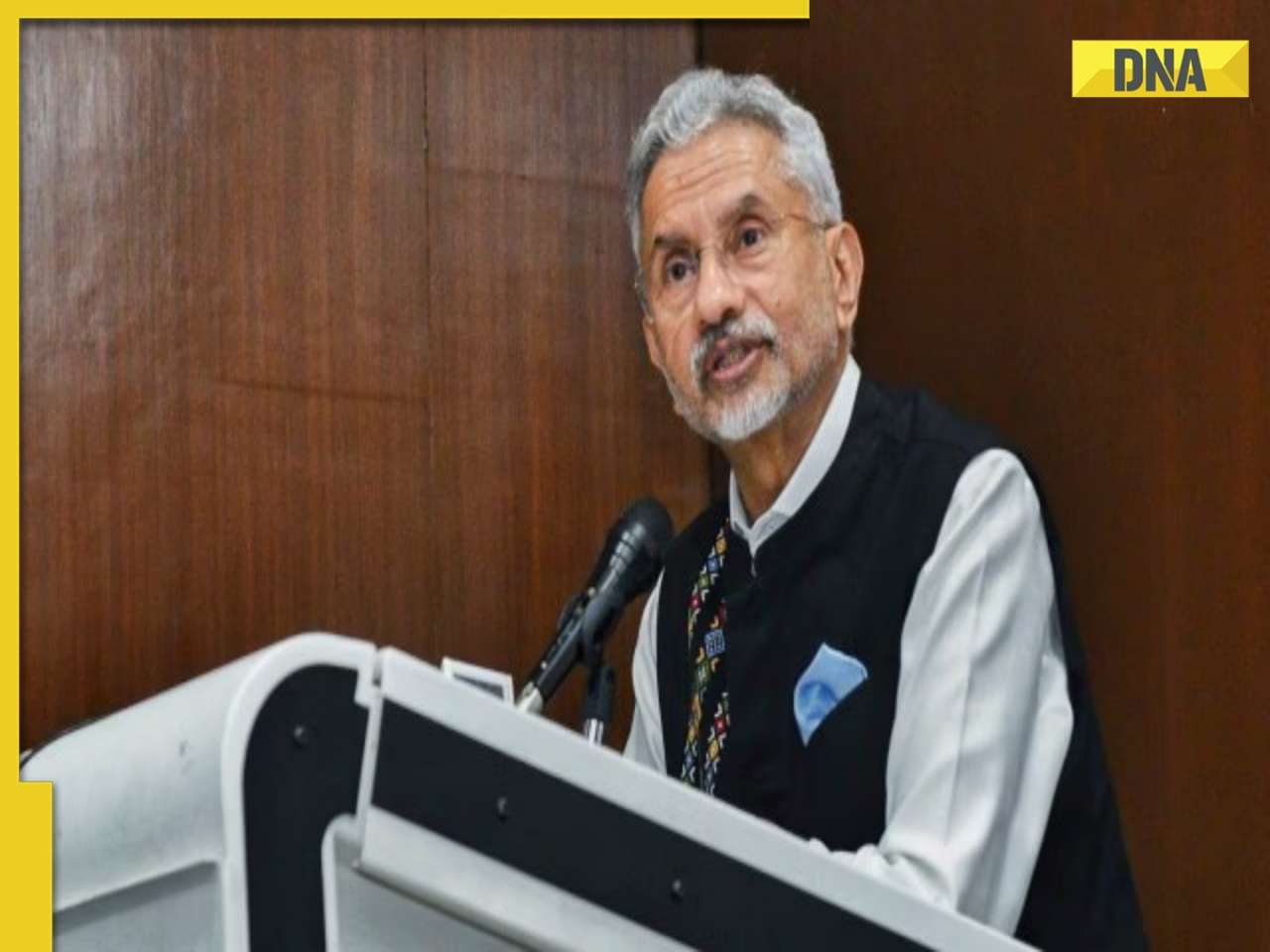Dravid said that it was about improving over time and overcoming the shortcomings in one's game, something that he really saw Virat Kohli do over his initial years.
Seventeen-year-old Sarfaraz Khan's stroke-filled knock for Royal Challengers Bangalore against Rajasthan Royals on Wednesday night has everyone talking about the exciting talent from Mumbai. Including Rahul Dravid, the former India captain and now mentor of Rajasthan Royals.
While acknowledging Sarfaraz's talent, Dravid said that it is how he translated this talent into the longer format that is really important. Dravid also said that it was unfair to compare Sarfaraz to Sachin Tendulkar when the latter broke into the international scene at 16 years by smashing those sixes off Abdul Qadir in 1989.
“He has obviously got talent. There is no doubt that he is a young exciting kid,” Dravid said here on Thursday on the eve of Royals' away game against Mumbai Indians. “People have known about his talent for a long time now. It is not like an overnight sensation. It is very unfair to start comparing him with Sachin. It is really unfair on him as well. He needs to be given time to grow and mature at his own pace. It is a long way to go. He has had a great day. He has got to churn out runs for Mumbai in Ranji Trophy. He has got talent, no doubt about that. Whether that translates into success at international level, we will all see.”
Dravid said that it was about improving over time and overcoming the shortcomings in one's game, something that he really saw Virat Kohli do over his initial years.
“I saw a young Virat Kohli at 19. I first saw him at Royal Challengers Bangalore after he captained India in U-19. I saw a guy with great talent but did not have a great first IPL (165 runs in 12 innings @ 15.00 with 38 highest).
One of the great things about Virat was that you saw a player with ability. Next time I saw Virat a year later, he was a very good player. The next time I saw Virat another year later, he was even better. The weaknesses in his game when I first saw him, he had addressed them two years later.
“I don't think anyone is going to be a complete player at 17, 18, 19 years. How you address the challenges that come your way will determine success and that is what Virat has been able to do, constantly improve and answer questions that have been thrown at him at various stages of his career. He was asked questions in England about his ability outside the off-stump, against seaming, moving deliveries. Six months later, he answered it (in Australia). That is the thing. There are a lot of guys with talent and Sarfaraz is just one of them. There is Deepak (Hooda), so many other guys I can name in this competition that have a lot of talent and will have success. But the longevity will depend on how they keep improving and keep getting better.”
Dravid also commended the ICC's and BCCI's initiative to eradicate the issue of illegal bowling action. In the light of Kolkata Knight Riders' Sunil Narine being banned from bowling his off-spinners, Dravid said the issue had to be sorted out at the junior level.
“I really like ICC's and BCCI's efforts to try and rid this issue from the game,” Dravid said without getting into specific cases. “A lot of people talk about the misfortune about the individual bowler concerned, whoever he may be. I want to draw the light on other people. What about the batsman who were to get out and whose careers could get ruined having to face someone with a dodgy action whoever he may be?
“What about the young players? If you go through junior domestic structures, only a certain number of spinners can play in a junior team. If you have somebody with a dodgy action at the junior level and don't correct at that stage age, and because you want to win junior competitions and inter-school competitions, you allow people with dodgy actions to play. What happens to the person who doesn't get an opportunity to play in the XI because someone with a dodgy action had a slight advantage as a youngster. He walks away from the game, gives up the game.
“Person whose action was not corrected or dealt with at a young age, he reaches first-class or international level, he is not allowed to play. The whole talent that has not got an opportunity to play, suddenly you are left with people who don't have the skills at the Indian level. There was a time in Indian cricket, and people will be fair to admit, when there was a lot of people in domestic cricket with dodgy actions. People kept asking, 'where are the spinners?' I thought a whole host of spinners were not given an opportunity as youngsters because there were other people playing at that stage. Because they have now decided to eradicate that, it will take time. That is a fair way to go.”
The 42-year-old from Karnataka said that coaches did a disservice to the game by allowing youngsters with suspect action to continue playing without being corrected.
“If there is an element of doubt, it must be monitored and addressed to,” said Dravid. “The issue is not so much about international level and IPL level. The issue for me is what is happening at coaching camps across the country. To a naked eye, if someone is different, it is very obvious. Anyone with a naked eye can look at 15- or 16-year-old bowler and tell you he is different, there is some issue there. You can coach it out of that kid at a young age and give him a career. By allowing him to continue to play, as a coach, you are doing a disservice to the boy, doing the game and talent in your state a disservice. If you correct his action at a young age, who knows, he might go on to play international cricket. You are at least giving it a chance.”
Dravid also spoke on other topics relating to Rajasthan Royals, young talent and batting.
On Rajasthan Royals' start of five straight wins this season:
“It was a really good start to the season. It is a tough competition. There are a lot of evenly-matched teams, there are eight really good sides. As you have seen in this competition, you can never predict a winner on the day other than probably Chennai Super Kings at this point in time even though we beat them. No team has really walked away with it. It is nice to have a good start. Obviously, it has given us a nice cushion but a lot of work still remains and we know that we need to finish strong, which is as important as starting strong.”
On what the young talent from IPL can take home:
“There are a few things that can be real good takeaways for young cricketers. The opportunity to play in front of 40,000-50,000 people, the opportunity to experience playing in a high-pressure game at such a young age early on in your career. Normally, you get that kind of experience and get to play in these big stadiums, at least my generation, and in these kind of atmosphere only in international cricket. Now, as a youngster, you get it even at the IPL level. It is a great learning experience, how to handle pressure, how to deal with a situation. When you do make the step up to international cricket, it is not new to you. You have sort of experienced all of it before.
“The other thing is the opportunity to learn and interact with people from different countries and different environment. For a youngster, growing up, for example a Hooda in our team, you get an opportunity to spend 6-8 weeks with the likes of a Watson, a Smith, Ajinkya Rahane from the Indian team, you get to see first hand how they train, how they prepare, you get an opportunity to pick their brains, an opportunity to learn from them. For example, Sarfaraz gets the opportunity to talk to AB de Villiers about finishing a game or how to bat at the back end of the game. These lessons, if used well, is invaluable. Otherwise, you never get that kind of opportunity if you are not part of the same team.
You get a great opportunity to showcase the talent in front of a huge stage.”
On what the youngsters can do from such experience:
“One of the important things, and there are enough lessons to learn over the years now that we have gone through 8 IPLs, is to know that there are people who have succeeded in the odd IPL. It has not translated into something major. Most people know that IPL is nice and one form of the game. To really achieve success at the international level, you need to start converting that into first-class runs at the Ranji Trophy level. If your aspiration is to play for India, which should be for most kids, most people do realise that IPL is nice and one form of the game and gives you success, it opens other people's eyes to your talent. After that, you need to translate it into consistency in Ranji Trophy, Vijay Hazare Trophy, you need to start putting in performances there for the selectors to really start taking notice of you in the longer format of the game.
“We have had examples in the past where people have had succeeded in one or two IPLs and faded away whereas people who have generally succeeded over 7-8 years of IPL have been consistent in Ranji Trophy and kept developing their game. In T20, when you come in initially, a lot of people don't know you, your strengths and weaknesses, especially as young players you come in new and teams don't know how to bowl to you, how to plan to you, you can have a good 20-30 balls in a game. As you start playing more, teams start planning to you, they strategise much better to you, they bowl different lines, bowl to your weaknesses, stay away from strengths. If you don't develop in your game, you cannot survive in this league. It is a tough competition. Obviously, you cannot survive in first-class game as well.”
On whether IPL is an intermediate step between T20 and first-class:
“It is an intermediate step in that form of the game. In limited-overs game, IPL is terrific for a lot of young players. In terms of skills, just because you do well in IPL it is not going to translate into Test success but there are other things to learn like how to deal with pressure, how to be more confident, having the belief that playing against a Mitchell Johnson or a Mitchell Starc, playing against these kind of guys, even if it is for a short period of time, it gives you some level of confidence, some level of learnings that you can grow on. There is no guarantee that it will translate into Test success. But there are things that you can pick up. Just the fact of playing in front of a huge stadium, the crowd shouting, how to deal with that kind of pressure. Nothing else will teach you than this. When you come up with that kind experience and are playing for India, you know you have done this before.”
On Rajasthan Royals having more belief in players from Mumbai than Mumbai Indians themselves:
I don't look at players, whether they are from Mumbai or from Karnataka or elsewhere. We do not bring that equation at all. I have never sat in a selection for RR and thought over this player is from Mumbai or this player is from this place. It is just that it happened that the kind of players we have needed, the kind of skills we have needed, they happened to be from Mumbai. It was in auction.
Ajinkya Rahane was someone who came to us from Mumbai Indians early. Obviously a great potential, we were able to give him some opportunities. It is just about looking at players and the skills we specifically need. If it was a leg-spinner, it happened to be Pravin Tambe, who happened to be from Mumbai. We did not go looking for players from Mumbai. There are players from other places as well. You go to auction bidding for players and you get Dhawal Kulkarni, you get Abhishek Nayar. It kind of happened like that.”
On whether Mumbai players grasped better:
“Most kids we have, I am impressed with the desire and the hunger they have to keep improving. One of the things I find is, and obviously RR is based a little bit out of Mumbai, I do realise that the boys from Mumbai play much more games than people from other states. That definitely does help. There is a lot of game-aware than a set of players from other states. Players from other states may not get that many opportunities to play as many games as a player from Mumbai gets. Mumbai may not produce as many international superstars as they have in the past but as a Ranji team, they will always be very very competitive. Some of the kids, at 14 and 15, they play three- and four-day games. It doesn't happen anywhere else in the country. Obviously, guys from Mumbai have that advantage of playing a lot more cricket than people from other states.”
On whether RR considered continuing with Steven Smith as captain as the team began well under him:
“We had decided that Watto (Shane Watson) will be our captain right through the season and even though Steven Smith came and did a good job, we have full faith and confidence in Watson. He is a really good leader both on and off the field, he has the respect of the players. We have complete belief in him and did not think of changing him at any stage.”
On IPL giving a platform for recently-retired crickets to become coaches:
“It is a great opportunity that gives people a platform to be able to come back and share their experiences. As international coach, you are involved in cricket 10, 11 months in a year. That is difficult for a lot of recently-retired players who have spent a lot of time in the game. This (IPL) gives a great opportunity to comeback and contribute and work with youngsters. The exciting thing that I like about is it gives me an opportunity two months in a year to work with so many youngsters not just from my team but also to look around the country, to see talent like a Sarfaraz Khan. It gives opportunity for people from other countries to be able to come in like Daniel Vettori, Stephen Fleming, Ricky Ponting or others. And, it is great. It is terrific for a lot of young Indian talent, they get to interact with a lot of these guys, get to know them. Iqbal Abdulla spending time with Daniel Vettori must have great value in that.”
On whether different skill sets are required for T20:
If you look at it, the guys who are successful in T20 are generally those who have done well in Test cricket also. There might be an odd exception. If you pinpoint, you may find very good One-day cricketers who did not do well in Test cricket. But generally, Steve Smith is a very good example.
A very successful Test cricketer who has been able to translate his skills (in T20). The skill sets are different. If you only focus on T20 skills and try to be only a T20 player, some people may end up doing that at some stage but it is risky option. If you are not honing you skills elsewhere, I have not seen too many people who have succeeded only playing T20. The odd ones are like Kieron Pollard. You play two months here, what will you do for the rest 10 months of the year? You have got to keep playing cricket. If you are not playing cricket constantly, it is hard. You need to practice those skills. Skills for Test cricket and skills for T20 are different. But, there is an ability to do both.”
On who should be an ideal candidate to coach Team India:
“We have had some good candidates over the years. Gary (Kirsten) has had a great success with the team. Coaching is important but the quality of players you have is the most important thing. That is a critical area for me. I don't think coaches necessarily win or lose you games. There is a lot of emphasis put on coaching in cricket. They can help, they can create the right environment, No coach has a magic wand. It should always be a players' team. The success or failure should always be the responsibility of the core group and the senior group of players. They need to drive that rather than the coaches. Coaches can help and there will be a lot of candidates without naming one.”
![submenu-img]() 'They unilaterally took some measures': EAM Jaishankar on new Nepal 100 rupee currency
'They unilaterally took some measures': EAM Jaishankar on new Nepal 100 rupee currency![submenu-img]() Meet Ice Cream Lady of India, who built Rs 6000 crore company, started with small investment of Rs…
Meet Ice Cream Lady of India, who built Rs 6000 crore company, started with small investment of Rs…![submenu-img]() ‘Canada a rule-of-law country’: PM Trudeau after 3 Indian arrested over Hardeep Nijjar's murder
‘Canada a rule-of-law country’: PM Trudeau after 3 Indian arrested over Hardeep Nijjar's murder![submenu-img]() Viral video: Specially-abled girl’s energetic dance to Bollywood song wows internet, watch
Viral video: Specially-abled girl’s energetic dance to Bollywood song wows internet, watch![submenu-img]() 'Baap re baap': Imtiaz Ali reveals Diljit Dosanjh was scandalised by old women's 'vulgar' improvisation on Chamkila set
'Baap re baap': Imtiaz Ali reveals Diljit Dosanjh was scandalised by old women's 'vulgar' improvisation on Chamkila set![submenu-img]() DNA Verified: Is CAA an anti-Muslim law? Centre terms news report as 'misleading'
DNA Verified: Is CAA an anti-Muslim law? Centre terms news report as 'misleading'![submenu-img]() DNA Verified: Lok Sabha Elections 2024 to be held on April 19? Know truth behind viral message
DNA Verified: Lok Sabha Elections 2024 to be held on April 19? Know truth behind viral message![submenu-img]() DNA Verified: Modi govt giving students free laptops under 'One Student One Laptop' scheme? Know truth here
DNA Verified: Modi govt giving students free laptops under 'One Student One Laptop' scheme? Know truth here![submenu-img]() DNA Verified: Shah Rukh Khan denies reports of his role in release of India's naval officers from Qatar
DNA Verified: Shah Rukh Khan denies reports of his role in release of India's naval officers from Qatar![submenu-img]() DNA Verified: Is govt providing Rs 1.6 lakh benefit to girls under PM Ladli Laxmi Yojana? Know truth
DNA Verified: Is govt providing Rs 1.6 lakh benefit to girls under PM Ladli Laxmi Yojana? Know truth![submenu-img]() Streaming This Week: Heeramandi, Shaitaan, Manjummel Boys, latest OTT releases to binge-watch
Streaming This Week: Heeramandi, Shaitaan, Manjummel Boys, latest OTT releases to binge-watch![submenu-img]() Remember Ayesha Kapur? Michelle from Black, here's how actress, nutrition coach, entrepreneur looks after 19 years
Remember Ayesha Kapur? Michelle from Black, here's how actress, nutrition coach, entrepreneur looks after 19 years![submenu-img]() Remember Heyy Babyy's cute 'Angel' Juanna Sanghvi? 20 year-old looks unrecognisable now, fans say 'her comeback will...'
Remember Heyy Babyy's cute 'Angel' Juanna Sanghvi? 20 year-old looks unrecognisable now, fans say 'her comeback will...'![submenu-img]() In pics: Arti Singh stuns in red lehenga as she ties the knot with beau Dipak Chauhan in dreamy wedding
In pics: Arti Singh stuns in red lehenga as she ties the knot with beau Dipak Chauhan in dreamy wedding![submenu-img]() Actors who died due to cosmetic surgeries
Actors who died due to cosmetic surgeries![submenu-img]() DNA Explainer: Why Harvey Weinstein's rape conviction was overturned, will beleaguered Hollywood mogul get out of jail?
DNA Explainer: Why Harvey Weinstein's rape conviction was overturned, will beleaguered Hollywood mogul get out of jail?![submenu-img]() What is inheritance tax?
What is inheritance tax?![submenu-img]() DNA Explainer: What is cloud seeding which is blamed for wreaking havoc in Dubai?
DNA Explainer: What is cloud seeding which is blamed for wreaking havoc in Dubai?![submenu-img]() DNA Explainer: What is Israel's Arrow-3 defence system used to intercept Iran's missile attack?
DNA Explainer: What is Israel's Arrow-3 defence system used to intercept Iran's missile attack?![submenu-img]() DNA Explainer: How Iranian projectiles failed to breach iron-clad Israeli air defence
DNA Explainer: How Iranian projectiles failed to breach iron-clad Israeli air defence![submenu-img]() 'Baap re baap': Imtiaz Ali reveals Diljit Dosanjh was scandalised by old women's 'vulgar' improvisation on Chamkila set
'Baap re baap': Imtiaz Ali reveals Diljit Dosanjh was scandalised by old women's 'vulgar' improvisation on Chamkila set![submenu-img]() This actor, who worked with Karan Johar and Farhan Akhtar, gave superhit shows, saw failed marriage, killed himself at..
This actor, who worked with Karan Johar and Farhan Akhtar, gave superhit shows, saw failed marriage, killed himself at..![submenu-img]() Did you know Ranveer Singh's grandmother was popular actress? Worked with Raj Kapoor; her career affected due to...
Did you know Ranveer Singh's grandmother was popular actress? Worked with Raj Kapoor; her career affected due to...![submenu-img]() India's highest-paid TV actress began working at 8, her Bollywood films flopped, was seen in Bigg Boss 1, now charges...
India's highest-paid TV actress began working at 8, her Bollywood films flopped, was seen in Bigg Boss 1, now charges...![submenu-img]() Shreyas Talpade wonders if his heart attack was due to Covid vaccine: 'We don’t know what we have taken inside...'
Shreyas Talpade wonders if his heart attack was due to Covid vaccine: 'We don’t know what we have taken inside...'![submenu-img]() IPL 2024: Faf du Plessis, Virat Kohli help Royal Challengers Bengaluru defeat Gujarat Titans by 4 wickets
IPL 2024: Faf du Plessis, Virat Kohli help Royal Challengers Bengaluru defeat Gujarat Titans by 4 wickets![submenu-img]() IPL 2024: Why is Sai Kishore not playing today's RCB vs GT match?
IPL 2024: Why is Sai Kishore not playing today's RCB vs GT match?![submenu-img]() 'Mumbai Indians ki kahani khatam': Ex-India star slams Hardik Pandya after MI's loss to KKR at Wankhede
'Mumbai Indians ki kahani khatam': Ex-India star slams Hardik Pandya after MI's loss to KKR at Wankhede![submenu-img]() LSG vs KKR, IPL 2024: Predicted playing XI, live streaming details, weather and pitch report
LSG vs KKR, IPL 2024: Predicted playing XI, live streaming details, weather and pitch report![submenu-img]() LSG vs KKR IPL 2024 Dream11 prediction: Fantasy cricket tips for Lucknow Super Giants vs Kolkata Knight Riders
LSG vs KKR IPL 2024 Dream11 prediction: Fantasy cricket tips for Lucknow Super Giants vs Kolkata Knight Riders![submenu-img]() Viral video: Specially-abled girl’s energetic dance to Bollywood song wows internet, watch
Viral video: Specially-abled girl’s energetic dance to Bollywood song wows internet, watch![submenu-img]() Viral video: Man educates younger brother about mensuration, internet is highly impressed
Viral video: Man educates younger brother about mensuration, internet is highly impressed![submenu-img]() Girl's wedding dance to Haryanvi song interrupted by mother in viral video, internet reacts
Girl's wedding dance to Haryanvi song interrupted by mother in viral video, internet reacts![submenu-img]() Viral video: Man fearlessly grabs dozens of snakes, internet is scared
Viral video: Man fearlessly grabs dozens of snakes, internet is scared![submenu-img]() This mysterious mobile phone number was suspended after three users...
This mysterious mobile phone number was suspended after three users...






































)









)
)
)
)
)
)